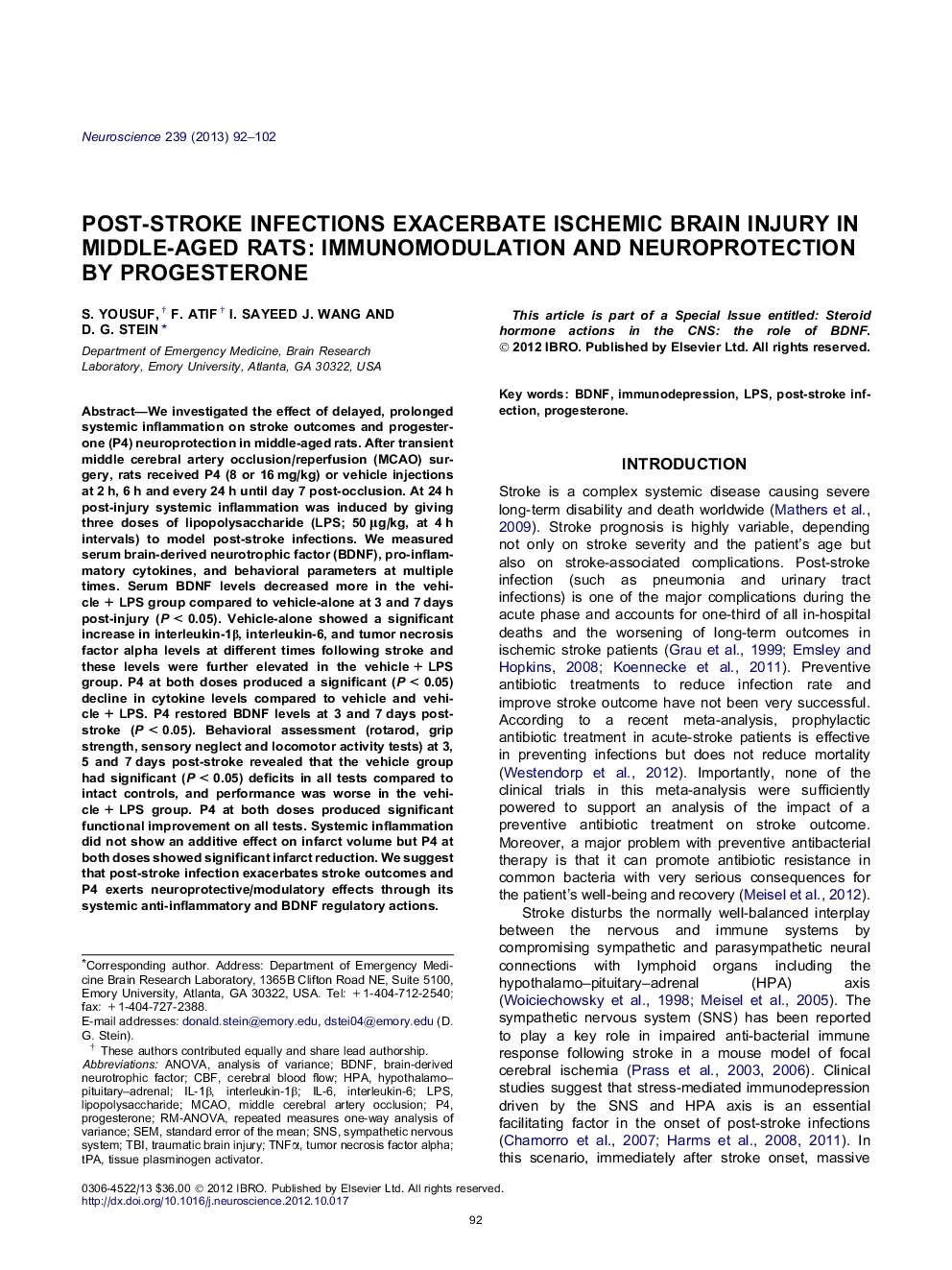| کد مقاله | کد نشریه | سال انتشار | مقاله انگلیسی | نسخه تمام متن |
|---|---|---|---|---|
| 4338016 | 1614837 | 2013 | 11 صفحه PDF | دانلود رایگان |

We investigated the effect of delayed, prolonged systemic inflammation on stroke outcomes and progesterone (P4) neuroprotection in middle-aged rats. After transient middle cerebral artery occlusion/reperfusion (MCAO) surgery, rats received P4 (8 or 16 mg/kg) or vehicle injections at 2 h, 6 h and every 24 h until day 7 post-occlusion. At 24 h post-injury systemic inflammation was induced by giving three doses of lipopolysaccharide (LPS; 50 μg/kg, at 4 h intervals) to model post-stroke infections. We measured serum brain-derived neurotrophic factor (BDNF), pro-inflammatory cytokines, and behavioral parameters at multiple times. Serum BDNF levels decreased more in the vehicle + LPS group compared to vehicle-alone at 3 and 7 days post-injury (P < 0.05). Vehicle-alone showed a significant increase in interleukin-1β, interleukin-6, and tumor necrosis factor alpha levels at different times following stroke and these levels were further elevated in the vehicle + LPS group. P4 at both doses produced a significant (P < 0.05) decline in cytokine levels compared to vehicle and vehicle + LPS. P4 restored BDNF levels at 3 and 7 days post-stroke (P < 0.05). Behavioral assessment (rotarod, grip strength, sensory neglect and locomotor activity tests) at 3, 5 and 7 days post-stroke revealed that the vehicle group had significant (P < 0.05) deficits in all tests compared to intact controls, and performance was worse in the vehicle + LPS group. P4 at both doses produced significant functional improvement on all tests. Systemic inflammation did not show an additive effect on infarct volume but P4 at both doses showed significant infarct reduction. We suggest that post-stroke infection exacerbates stroke outcomes and P4 exerts neuroprotective/modulatory effects through its systemic anti-inflammatory and BDNF regulatory actions.
► Prolonged systemic post-stroke inflammation worsens stroke outcomes in middle-aged rats.
► Systemic inflammation worsens behavioral deficits in stroke animals.
► Progesterone treatment reduces infarct volume after transient stroke.
► P4 reduced functional deficits by modulating pro-inflammatory cytokines and BDNF.
Journal: Neuroscience - Volume 239, 3 June 2013, Pages 92–102